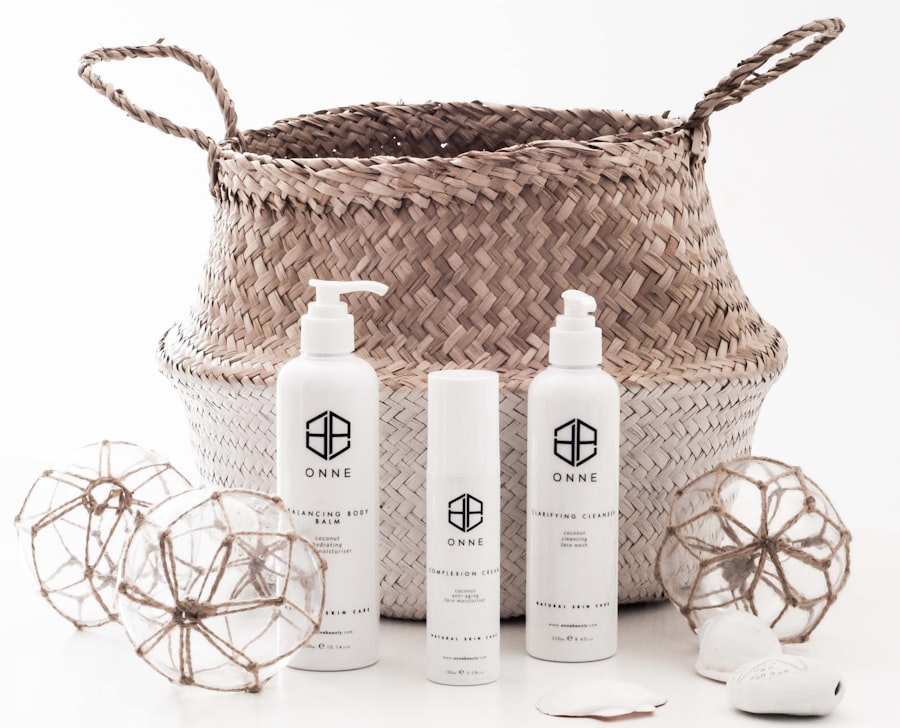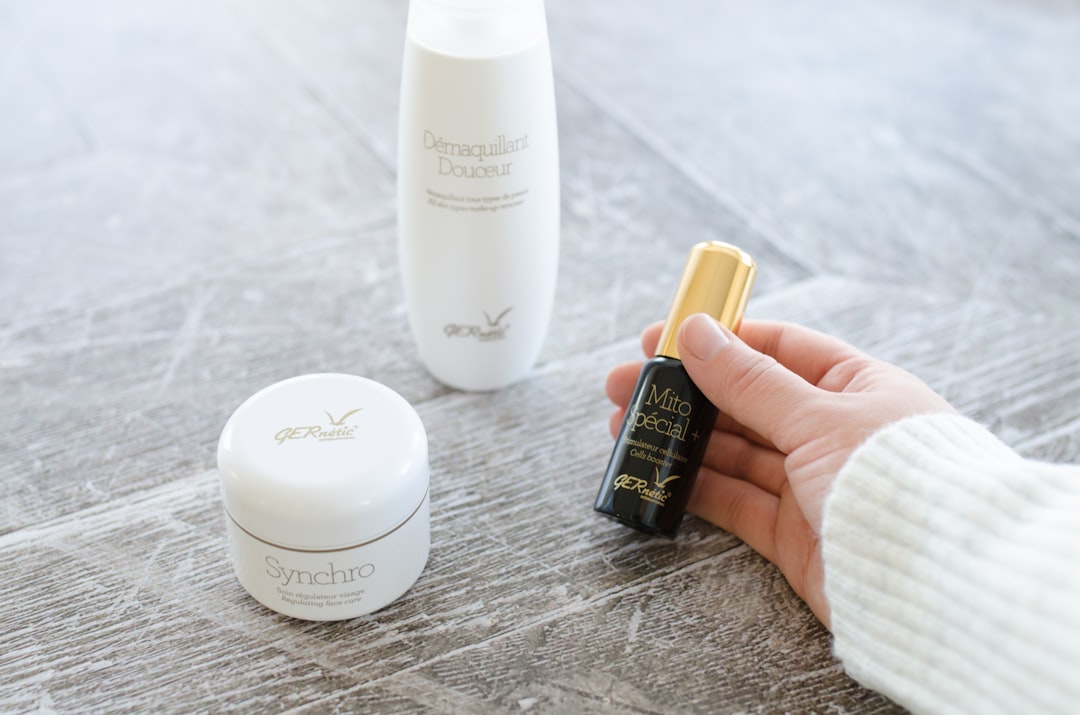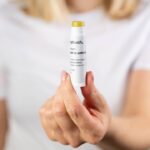When you undergo a laser treatment, your skin experiences a significant transformation. The procedure, while effective in addressing various skin concerns, can leave your skin vulnerable and sensitive. This is why understanding the importance of post-laser skin care is crucial for you.
Proper aftercare not only aids in the healing process but also enhances the results of the treatment. By taking the time to care for your skin post-procedure, you can minimize potential side effects and ensure that your skin heals beautifully. Your skin is in a delicate state after laser treatment, and it requires special attention.
The right post-laser care can help reduce inflammation, prevent infection, and promote faster healing. Additionally, it can help you avoid complications such as hyperpigmentation or scarring, which can occur if your skin is not properly cared for. By prioritizing your post-laser skin care routine, you are investing in the long-term health and appearance of your skin, ensuring that you achieve the best possible results from your treatment.
Key Takeaways
- Post-laser skin care is crucial for optimal healing and results
- Choose products specifically designed for post-laser care to avoid irritation
- Gentle cleansing is essential to avoid further irritation and promote healing
- Protect your skin from the sun with SPF and physical barriers
- Hydrate and moisturize your skin to support the healing process
Choosing the Right Products for Post-Laser Skin Care
Selecting the appropriate products for your post-laser skin care routine is essential for optimal recovery. You should look for gentle, fragrance-free formulations that are specifically designed for sensitive skin. Ingredients like aloe vera, hyaluronic acid, and ceramides can be particularly beneficial as they help soothe irritation and restore moisture.
Avoid products with alcohol or strong fragrances, as these can exacerbate sensitivity and lead to further irritation. In addition to soothing ingredients, consider incorporating products that provide a barrier to protect your skin. A good moisturizer can help lock in hydration and create a protective layer over your skin.
You might also want to explore options like healing ointments or balms that are designed to support the skin’s natural healing process. Always consult with your dermatologist for recommendations tailored to your specific skin type and the laser treatment you received, ensuring that you choose products that will complement your recovery.
Establishing a Gentle Cleansing Routine

A gentle cleansing routine is vital in the days and weeks following your laser treatment. Your skin will be sensitive, so it’s important to avoid harsh scrubs or cleansers that could irritate it further. Instead, opt for a mild, hydrating cleanser that will effectively remove impurities without stripping your skin of its natural oils.
You may find that using lukewarm water instead of hot water helps to soothe your skin during this time. When cleansing, be sure to use your fingertips rather than a washcloth or sponge, as these can be too abrasive on freshly treated skin. Gently massage the cleanser onto your face in circular motions and rinse thoroughly.
After cleansing, pat your skin dry with a soft towel—never rub it, as this can cause additional irritation. Establishing this gentle routine will help maintain your skin’s integrity while promoting healing.
Protecting Your Skin from the Sun
| Factors | Recommendations |
|---|---|
| Sunscreen | Use a broad-spectrum sunscreen with SPF 30 or higher |
| Clothing | Wear protective clothing, such as long-sleeved shirts and wide-brimmed hats |
| Shade | Seek shade during peak sun hours (10am-4pm) |
| Sunglasses | Wear sunglasses that block both UVA and UVB rays |
| Avoid tanning beds | Avoid using tanning beds, as they emit harmful UV radiation |
Sun protection is one of the most critical aspects of post-laser skin care. After undergoing a laser treatment, your skin becomes more susceptible to sun damage, which can lead to complications such as hyperpigmentation or prolonged redness. Therefore, it’s essential to apply a broad-spectrum sunscreen with an SPF of at least 30 every day, even if it’s cloudy outside.
This will help shield your sensitive skin from harmful UV rays and support the healing process. In addition to sunscreen, consider wearing protective clothing such as wide-brimmed hats or sunglasses when you’re outdoors. If possible, try to stay out of direct sunlight during peak hours, typically between 10 a.m.
and 4 p.m. By taking these precautions, you can significantly reduce the risk of sun damage and ensure that your skin heals properly after the laser treatment.
Hydrating and Moisturizing Your Skin
Hydration is key to maintaining healthy skin after laser treatment.
Look for moisturizers that contain ingredients like glycerin or hyaluronic acid, which attract moisture to the skin and help maintain its hydration levels.
Applying these products regularly will not only soothe any discomfort but also promote a more radiant complexion. In addition to using topical moisturizers, remember to hydrate from within by drinking plenty of water throughout the day.
You might also consider using a humidifier in your home to add moisture to the air, especially in dry climates or during winter months when indoor heating can strip moisture from the air and your skin.
Avoiding Harsh Chemicals and Exfoliants
After laser treatment, it’s crucial to avoid harsh chemicals and exfoliants that could irritate your sensitive skin. This includes products containing retinoids, alpha hydroxy acids (AHAs), beta hydroxy acids (BHAs), or any other strong active ingredients that may disrupt the healing process. Instead, focus on gentle formulations that prioritize soothing and nourishing your skin.
You should also refrain from using physical exfoliants like scrubs or brushes during this time. While exfoliation is beneficial for maintaining healthy skin under normal circumstances, it can be too aggressive for freshly treated skin. Allow your skin time to heal naturally before reintroducing exfoliation into your routine—this will help prevent irritation and ensure that you achieve the best results from your laser treatment.
Managing Discomfort and Redness
It’s common to experience some discomfort and redness following a laser treatment; however, there are ways to manage these symptoms effectively. Applying a cool compress to the affected areas can provide immediate relief from heat and swelling. You might also consider using soothing gels or creams containing aloe vera or chamomile, which can help calm irritated skin.
If you find that discomfort persists or becomes more intense, consult with your dermatologist for additional recommendations. They may suggest over-the-counter pain relief options or topical treatments specifically designed to alleviate post-laser symptoms. Remember that while some redness is normal, it should gradually subside over time; if you notice any unusual changes or prolonged discomfort, don’t hesitate to reach out for professional advice.
Following Up with Your Dermatologist for Further Care
Regular follow-up appointments with your dermatologist are essential for monitoring your recovery after laser treatment. These visits allow your dermatologist to assess how well your skin is healing and make any necessary adjustments to your post-laser care routine. They can provide valuable insights into what products are working well for you and whether any changes are needed based on how your skin responds.
During these follow-up appointments, don’t hesitate to discuss any concerns you may have about your recovery process. Whether it’s persistent redness, discomfort, or questions about when you can resume certain activities or products, open communication with your dermatologist is key to ensuring a smooth recovery. By staying engaged in your post-laser care journey, you can maximize the benefits of your treatment and enjoy healthier, more radiant skin in the long run.
After undergoing laser treatment, it is crucial to follow a proper skincare routine to ensure optimal results and minimize any potential side effects. One helpful resource for post-laser skincare tips is the article on best skin care after laser treatment from In Laser Hair Removal. This article provides valuable insights on how to care for your skin after laser treatment, including recommendations for gentle cleansers, moisturizers, and sun protection. By following these guidelines, you can help your skin heal effectively and maintain a healthy, radiant complexion.
FAQs
What is laser treatment for skin?
Laser treatment for skin is a cosmetic procedure that uses focused light to target specific skin concerns such as wrinkles, scars, pigmentation, and hair removal. It works by delivering intense pulses of light to the skin, which can stimulate collagen production, reduce pigmentation, and improve overall skin texture.
What are the common side effects of laser treatment for skin?
Common side effects of laser treatment for skin include redness, swelling, and mild discomfort. Some people may also experience temporary changes in skin color, such as darkening or lightening, and in rare cases, blistering or scarring may occur.
How should I care for my skin after laser treatment?
After laser treatment, it is important to follow a specific skincare routine to promote healing and minimize the risk of complications. This may include using gentle cleansers, avoiding sun exposure, applying moisturizers and serums recommended by your dermatologist, and avoiding harsh skincare products or treatments.
What are the best skincare products to use after laser treatment?
The best skincare products to use after laser treatment are those that are gentle, hydrating, and free from harsh ingredients. Look for products that contain soothing ingredients such as aloe vera, hyaluronic acid, and ceramides, and avoid products with fragrances, alcohol, or exfoliating acids.
How long does it take for the skin to heal after laser treatment?
The healing time after laser treatment can vary depending on the type of laser used and the specific skin concern being treated. In general, most people will experience redness and swelling for a few days to a week, and full healing may take several weeks. It is important to follow your dermatologist’s post-treatment instructions for the best results.







